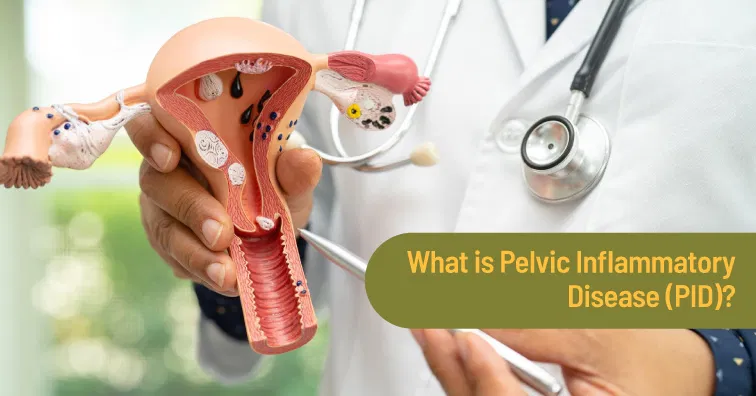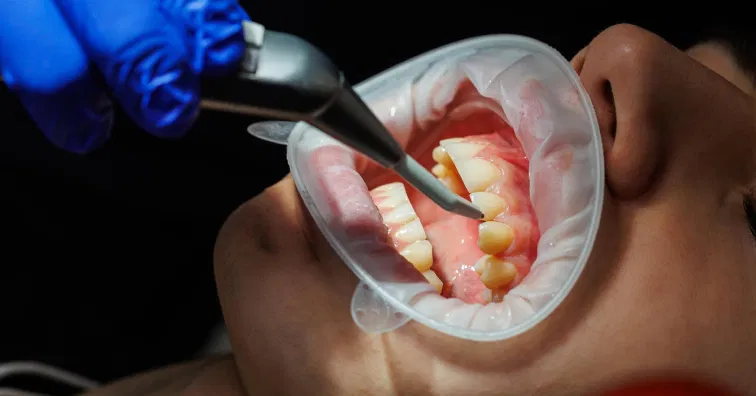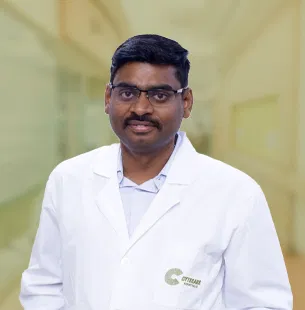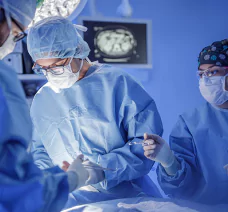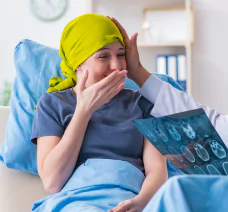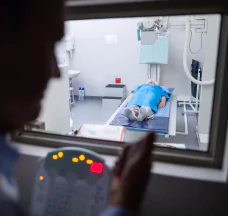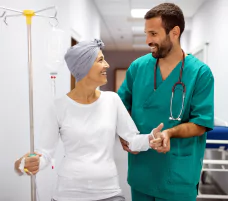Overview
A diagnosis of cancer often causes much anxiety and grief in everyone. This is more so when the patient is a young child. If a child is diagnosed with cancer, it has a big impact on the whole family. It is important to remember that it’s not the parents/ caregiver’s fault that the child has cancer, and it’s not because of anything they’ve done or anything they have not done.
Pediatric oncology is a medical speciality focused on the care of children with cancer.In India, cancer is the 9th most common cause of death among children between years 5 and 14.
The most common types of cancer diagnosed in children ages 0 to 14 are leukemias, brain and other central nervous systems (CNS) tumors and Lymphomas. The causes of most childhood cancers are not known. Approximately 5 percent of all childhood cancers are caused by an inherited mutation (a genetic mutation that can be passed from parents to their children). Most cancers in children are thought to develop due to gene mutations that lead to uncontrolled cell growth and, eventually, cancer.
Childhood cancer needs multidisciplinary, holistic care to ensure appropriate and individualised treatment. Improving outcomes for children with cancer requires early and accurate diagnosis followed by effective treatment.
The treatment of childhood cancers is one of the success stories in the history of medical oncology. In the 1970s, less than 10% of all children diagnosed with cancers used to get cured with the available therapy. In 2019, more than 80% of all childhood malignancies can be treated effectively and cured. Treatment that a child with cancer receives will depend on the type of cancer and its prevalence. After clinical evaluation, Diagnostic and staging investigations often direct further treatment, which may include surgery, chemotherapy, radiation therapy and immunotherapy.
During such intensive therapy, quite often, children may have to be hospitalised for prolonged periods or be reviewed by the doctor in the clinic with Frequent blood investigations. Children receiving chemotherapy are at risk of infections and bleeding. The cancer is not contagious ( it wouldn't spread to others by touch or contact). Once treatment is completed, the child can resume school and everyday activities but will be followed up regularly.
Hematological And Lymphoid Malignancies (Blood And Lymph Node Cancers)
Diagnosis
Many childhood cancers have higher survival rates when diagnosed in the early stages of cancer. It is recommended that children should have regular medical check-ups with a pediatric oncologist and that parents must pay close attention to the development of unusual signs or chronic symptoms of pediatric cancer.
Discuss your child’s symptoms with your pediatrician so that, they can suggest screening tests or biopsy accordingly, which involves removing some cells within the tumour for examination.
Common Malignancies In Children
Hematological and lymphoid malignancies (Blood and lymph node cancers)
- Acute lymphoblastic leukemia
- Acute myeloid leukemia
- Hodgkin lymphoma
- Non Hodgkin lymphoma
Solid Tumors
- Brain tumors
- Neuroblatoma
- Rhabdomyosarcoma
- Wilms tumor
- Germ cell tumors
- Retinoblastoma
- Bone tumors
- Other rare tumors
Long Term Follow Up
Childhood Cancer survivors can lead a normal healthy life after completion of therapy. They can go to school and integrate with society normally after the completion of cancer treatment. They can come for a check-up once in 3 to 6 months for early detection of long-term side effects. Childhood immunisation will be repeated after the completion of therapy.
Causes Of Cancer In Children
This is the most frequently asked question from caregivers. The cause of cancers in children is unknown in most cases. Unlike adults, cancers in children are unrelated to habits like smoking or alcoholism. It is not related to childhood-rearing practices and is not due to anyone’s fault. It is not hereditary in 95% of cancers. Very few cancers are hereditary, like retinoblastoma.
Symptoms Of Pediatric Cancer
Brain Tumors Symptoms in Children
- Headache
- Seizures
- Vomiting
- Nerve Palsies
- Weakness
- Altered Sensorium
Solid tumors Symptoms in Children
- Swelling/Mass
- Fever
- Loss of weight, appetite
- Constipation,diarrhea
- Red coloured urine
- Hypertension
- Bonetumors - bony selling, pain, Fracture
Retinoblastoma Symptoms in Children
- Whitish opacity in the eye
- Squint
- Proptosis
- Decreased vision
Leukemias and lymphomas Symptoms in Children
- Fever
- Pallor
- Bleeding
- Weight loss, loss of appetite
- Liver and spleen enlargement
- Lymph node enlargement
Treatment Of Pediatric Cancer
Chemotherapy
Chemotherapy is cancer medication given as injections or tablets at regular intervals.
Radiotherapy
Radiotherapy is the technique in which radiation is targeted to the tumor (cancer) through specialised radiotherapy equipments.
Surgery
Surgery is a treatment modality in certain tumors upfront or after chemotherapy.
Targeted therapy
Chemotherapy and Radiotherapy are the treatment modalities against pediatric cancer, but these modalities can affect the normal cells, which leads to unwanted side effects. As the name suggests, targeted therapy exclusively targets the tumor cells sparing the normal host cells, leading to minimal side effects compared to conventional treatment modalities.



